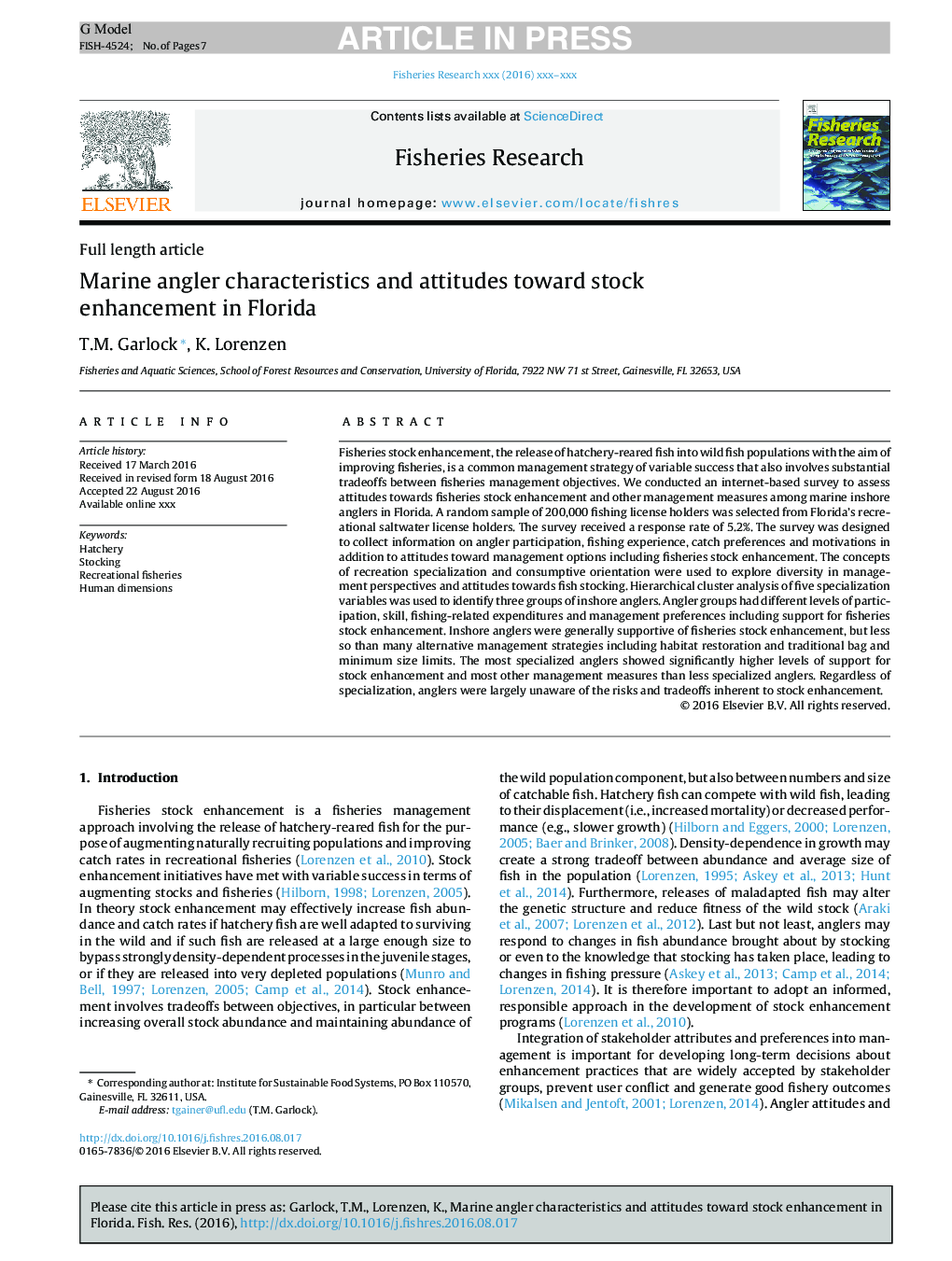| Article ID | Journal | Published Year | Pages | File Type |
|---|---|---|---|---|
| 5765564 | Fisheries Research | 2017 | 7 Pages |
Abstract
Fisheries stock enhancement, the release of hatchery-reared fish into wild fish populations with the aim of improving fisheries, is a common management strategy of variable success that also involves substantial tradeoffs between fisheries management objectives. We conducted an internet-based survey to assess attitudes towards fisheries stock enhancement and other management measures among marine inshore anglers in Florida. A random sample of 200,000 fishing license holders was selected from Florida's recreational saltwater license holders. The survey received a response rate of 5.2%. The survey was designed to collect information on angler participation, fishing experience, catch preferences and motivations in addition to attitudes toward management options including fisheries stock enhancement. The concepts of recreation specialization and consumptive orientation were used to explore diversity in management perspectives and attitudes towards fish stocking. Hierarchical cluster analysis of five specialization variables was used to identify three groups of inshore anglers. Angler groups had different levels of participation, skill, fishing-related expenditures and management preferences including support for fisheries stock enhancement. Inshore anglers were generally supportive of fisheries stock enhancement, but less so than many alternative management strategies including habitat restoration and traditional bag and minimum size limits. The most specialized anglers showed significantly higher levels of support for stock enhancement and most other management measures than less specialized anglers. Regardless of specialization, anglers were largely unaware of the risks and tradeoffs inherent to stock enhancement.
Related Topics
Life Sciences
Agricultural and Biological Sciences
Aquatic Science
Authors
T.M. Garlock, K. Lorenzen,
